
In our series Salary Stories, women with long-term career experience open up about the most intimate details of their jobs: compensation. It’s an honest look at how real people navigate the complicated world of negotiating, raises, promotions and job loss, with the hope it will give young people more insight into how to advocate for themselves — and maybe take a few risks along the way.
Been in the workforce for at least five years and interested in contributing your salary story? Submit your information here.
Age: 40
Location: Indianapolis
Current industry and job title: Tech, director of corporate communications
Current salary: $163,121 base with a 37% bonus, plus stock
Number of years employed since school or university: 18
Starting salary: $28,000
Biggest salary jump: From $69,000 to $120,000 with a 25% bonus. I went from an ad/PR agency job to an in-house role at a tech company. I swore I’d never go in-house because I thought it would be boring and too “corporate” but now I wish I had gone over sooner — the money is so much better and the work-life balance is amazing.
Biggest salary drop: From $155,000 with a 25% bonus to $145,000 with a 20% bonus. I had been laid off from a job following an acquisition, and after searching for nearly a year I finally found a new job. With my savings running out, I didn’t feel like I had the option to wait for something else, so I accepted. It was with a much bigger company so I felt that would look good on my résumé and could “make up” for the slight pay cut.
Biggest negotiation regret: I wish I had negotiated my bonuses. Most people focus on salary only but bonuses add up quickly, and even a few percentage points more can make a big difference over the years.
Best salary advice: Ask your friends what they make and don’t be afraid to share your number! I’m embarrassed to admit that I didn’t realize until just a few years ago that your employer can’t prevent you from discussing salary. When I shared my salary with a colleague, she realized she was being paid significantly less than me, despite having similar experience and more education. She was able to advocate for herself and address that gap. Knowledge is power!
I learned a lot of the things you can’t learn in school: the intangibles of business, the politics of an office, how to present yourself, and so on. I didn’t negotiate the salary at all, mainly because I was brand-new to the “big girl” job market. I was happy to take whatever they would give me.
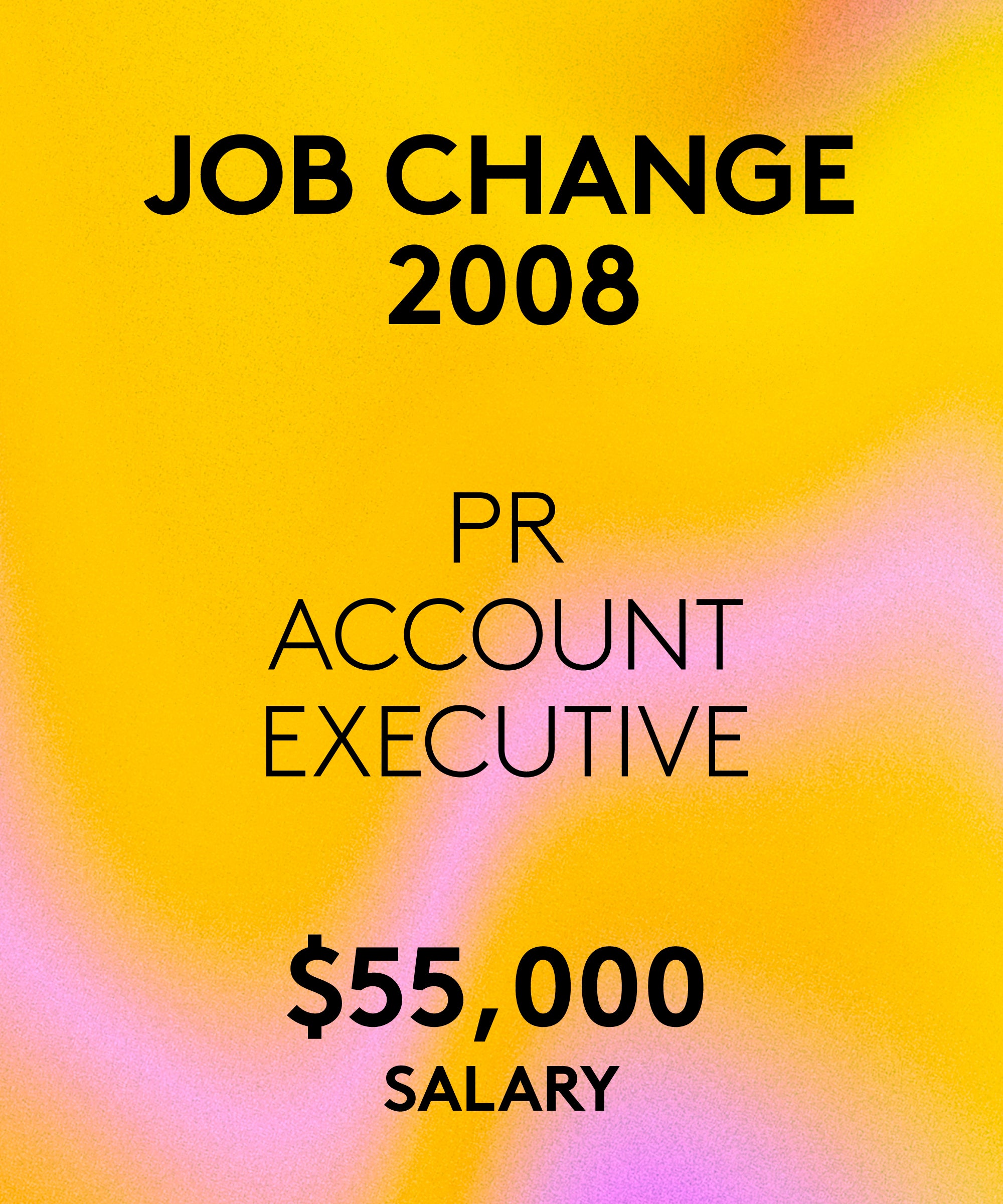
I ended up with three job offers and accepted this one because I liked the small, close-knit vibe of the agency, and the clients were household names I knew (mostly luxury cosmetic, fragrance and fashion brands). I knew that New York was far more expensive than the Midwest so when they asked in the interview what my salary expectations were, I told them $38,000. That seemed like a big jump to me!
The president of the agency literally laughed and said, “Oh, we would pay you $55,000!” I thought I was rich — it was a huge raise! But of course that money didn’t go very far in NYC and I was always broke and calling home for money. I was miserable and burnt out and lasted in this job only a year.
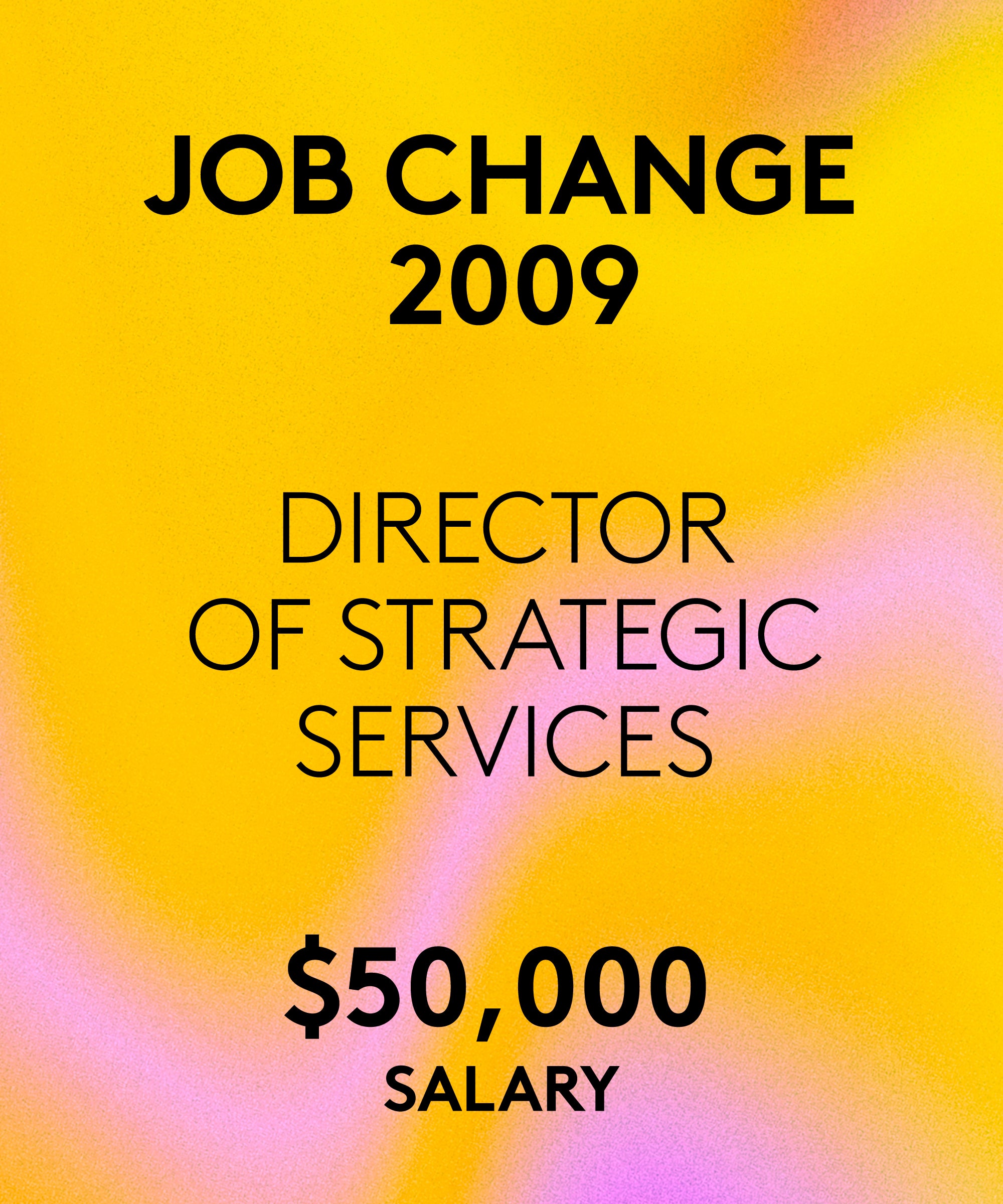
I didn’t want to go back to making Midwest money so I was firm on not accepting less than $50,000. That put me on the high end of junior talent for the Midwest back then, but this agency liked my big-city experience and we landed on $50,000. I was happy to stay close to what I was making in New York, and since the cost of living was so much cheaper in the Midwest, it went quite far.
In this role, I was the lead for any communications-related strategy project: public relations, media relations, ad copy, etc. I loved this little agency and found my stride professionally here. I was leading new business pitches, doing the PR and communications strategy work, and managing employees as we grew. Because the agency was so small, I was able to do pretty much everything and learned so much.
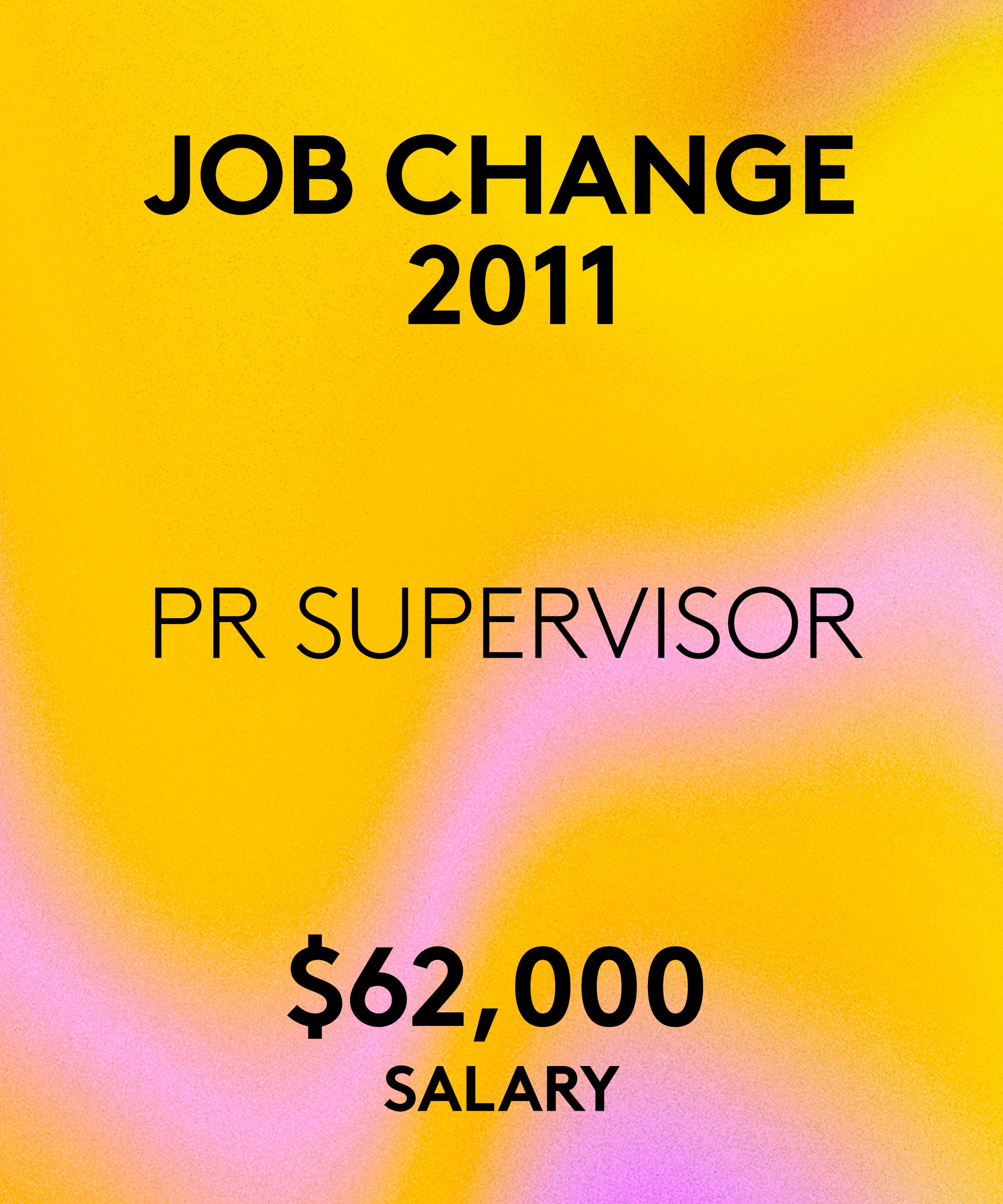
I heard through the grapevine that a large local agency had just signed a huge national client and needed to hire more people, so I reached out to them. I was hired as the account director. This was a much more corporate environment so I learned a new style of business.
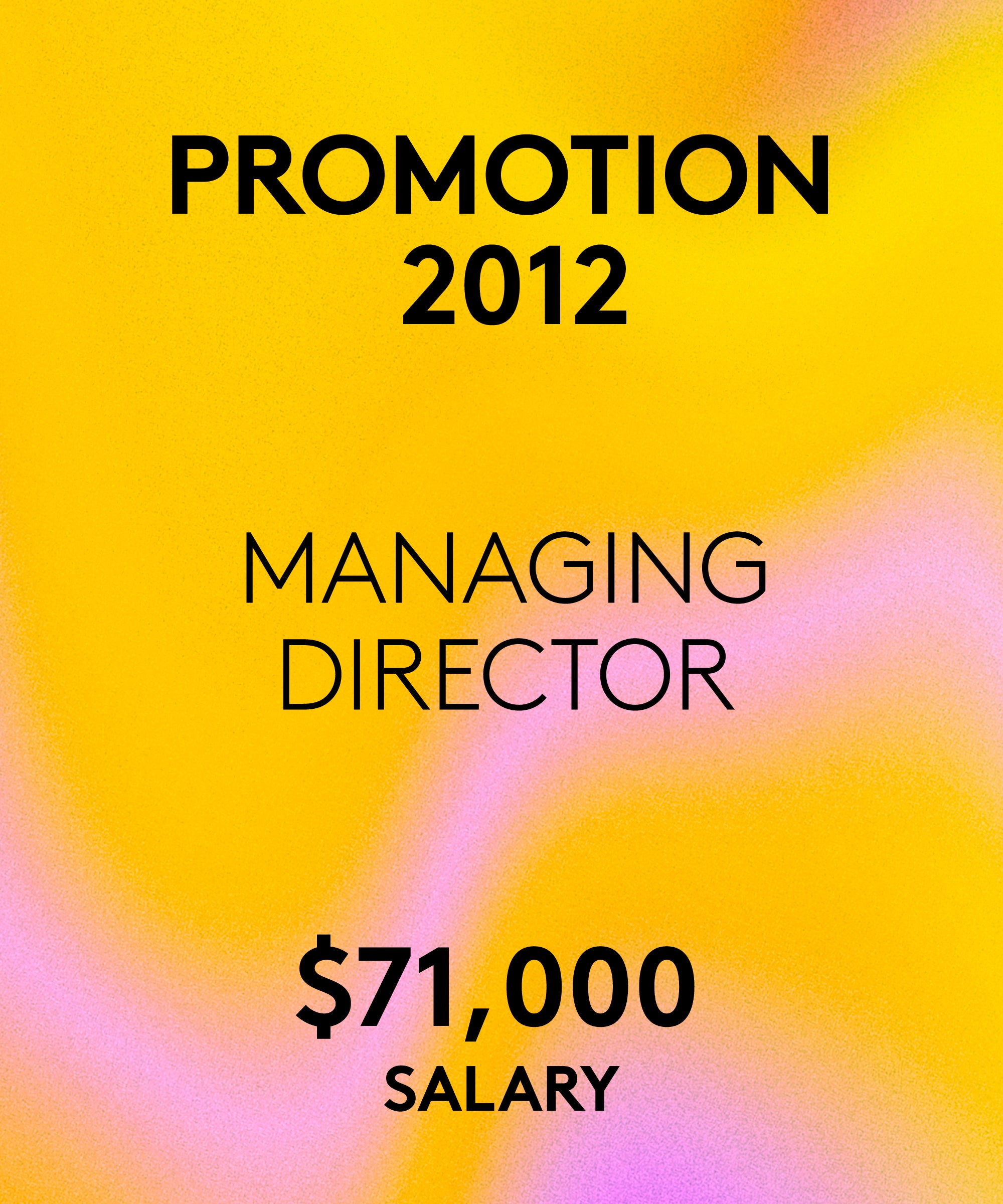
It was more administrative work than anything, but it meant a raise and a fancy-sounding title, so I was happy to take it (and in reality, I was already doing that work anyway).
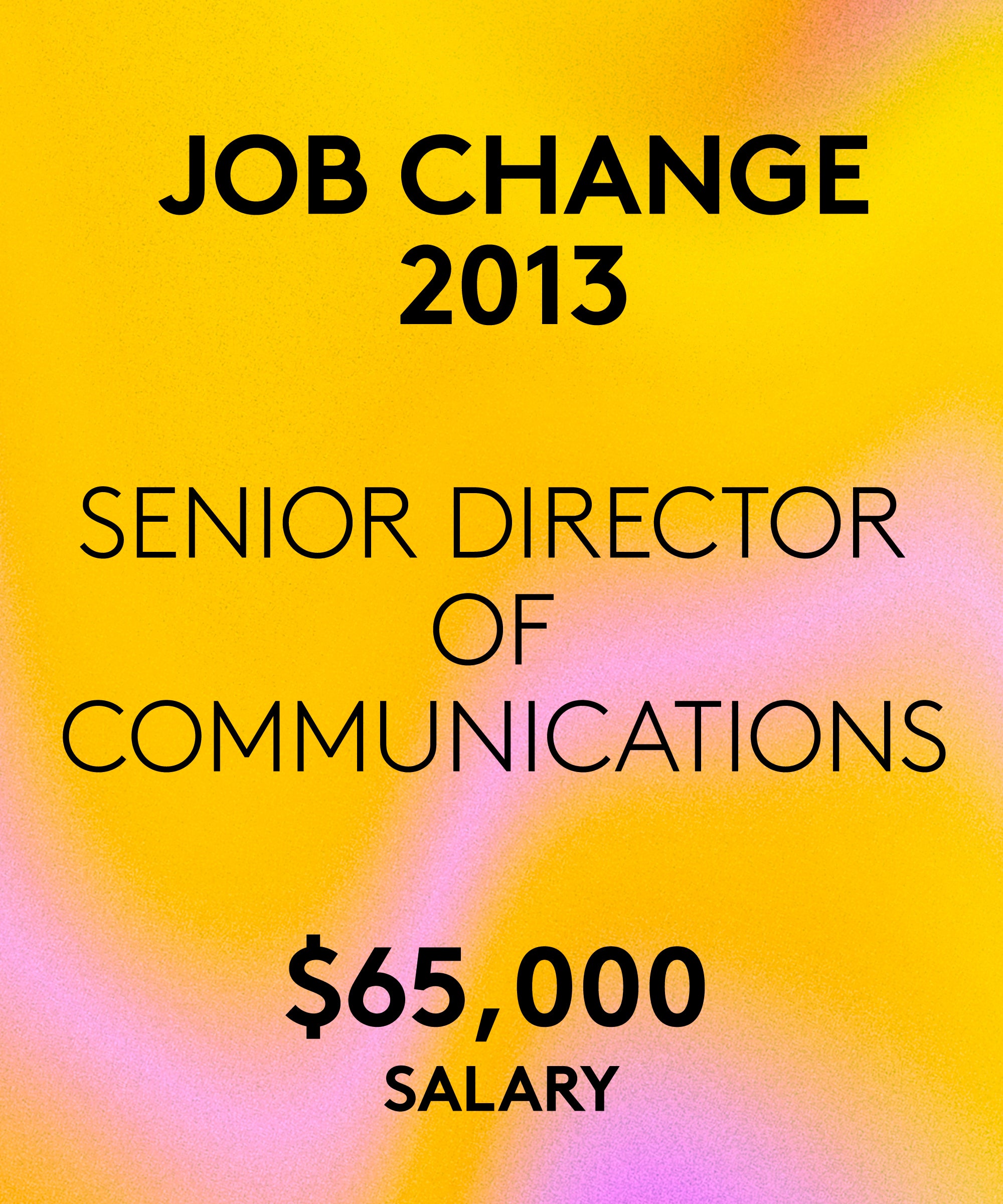
I didn’t work for the whole summer and it was a glorious break, but eventually I needed to find something. I did what had worked for me in the past: I reached out to multiple agencies, even if they weren’t hiring. In the PR and ad agency world, oftentimes agencies will create a job for someone who has specific media relations that the agency may want or need, and I had great relationships to bring with me.
I didn’t love this new agency even when I first joined, and I knew I wouldn’t stay very long, but it was a solid choice for the time being to keep money coming in. Because I took a summer off work, money was tight again and I wasn’t in the best spot to negotiate, so I ended up taking a small pay cut for this role.
Many of my previous companies had reputations for being slick, sexy agencies with the cool clients everyone wanted. This agency was run by people nearing retirement and they did a lot of seemingly uncool government work. Still, I knew it would be good for a few years until I decided on my next long-term move.
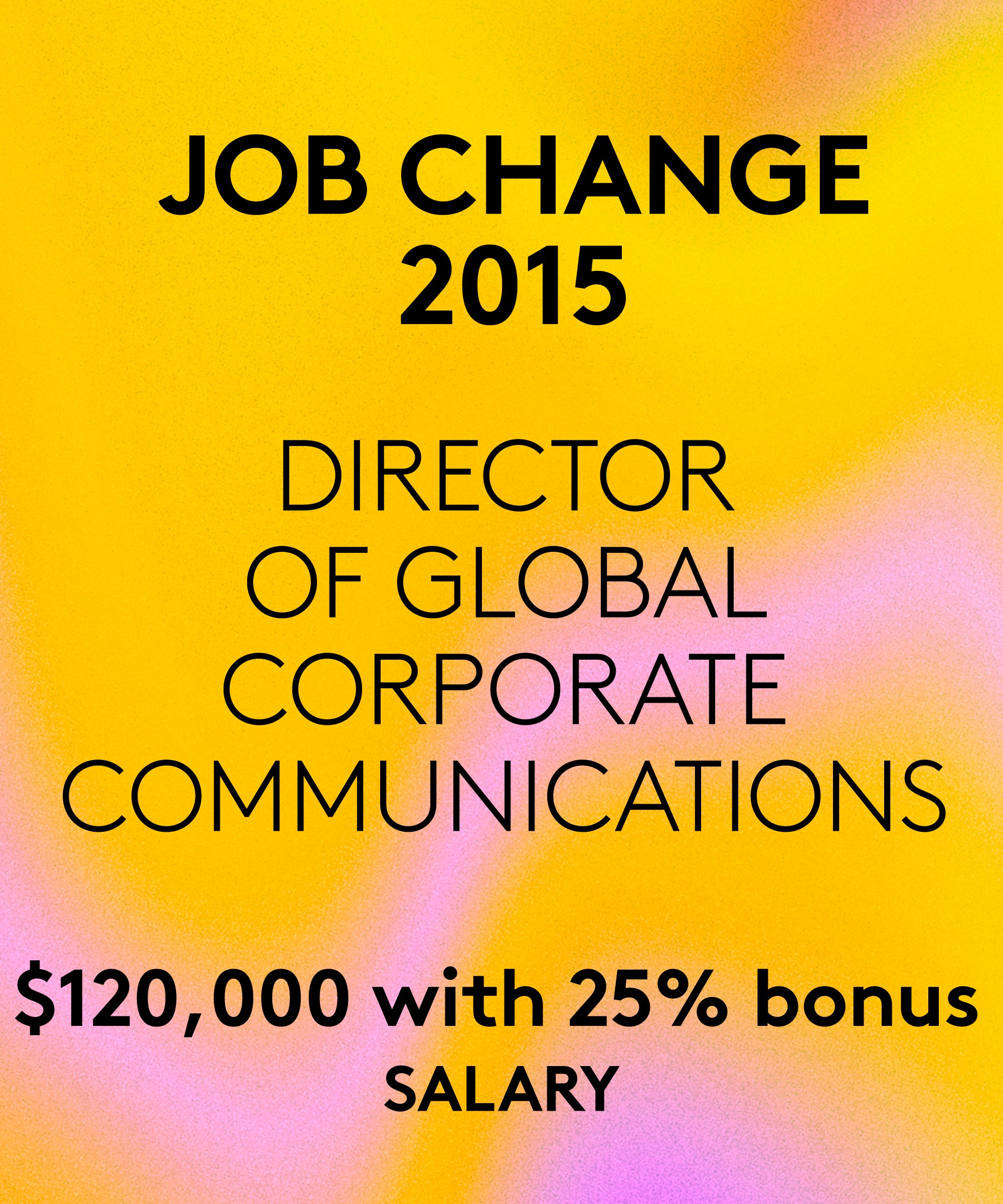
I didn’t think I had a shot. My experience was largely in the retail and consumer sectors — I hardly had any tech experience. I had also never worked in-house. But I did so much interview prep, literally reading every piece of information on their website, watching all their videos, researching everyone on LinkedIn. I basically became an expert on their company — and ultimately, it worked!
I flew out to San Francisco for my final interview round and while sightseeing on my last day, I received a call from the woman who would be my boss. When she presented the offer, my jaw literally dropped and I did a little dance right there on the sidewalk: $120,000 with a 25% bonus.
One thing I did when they asked for my salary expectations earlier in the interview process was simply not giving them a number. With all of the variables that were new to me, I had no idea what to ask for, and I was afraid of asking for too little. Instead, when they asked what I was expecting, I said, “I don’t think I have enough information at this time to give a range.” Now, nearly 10 years later, I wouldn’t suggest that move again, but it worked in my favor.
I never imagined making over six figures in the Midwest with no college degree. (I attended three years of college but dropped out to start working my first PR job. I wanted to make money and it was clear I could do that without finishing my degree.)
Working in tech was amazing. The startup culture was as clichéd as you would imagine. I spent a week in San Francisco each month. I flew first class. Our company dropped millions on customer parties that included household-name musicians. People worked hard but we all had fun and it felt like, in the least toxic sense of the word, a family.
Though my title didn’t change and I didn’t get a promotion per se (I was the most senior communications person when I was hired, so there wasn’t really anywhere for me to be promoted to), I got generous raises along the way. By the time I left this job, I was making $155,000 with a 25% bonus.
I also became a solo mom during this job — I adopted a child as a single woman. I was able to do that because I was making great money, had a low cost of living in the Midwest, and worked from home. That freedom allowed me to choose motherhood on my own, and on my own terms. If I’d known how lucrative and flexible an in-house role would be, I would’ve left the agency world years earlier.
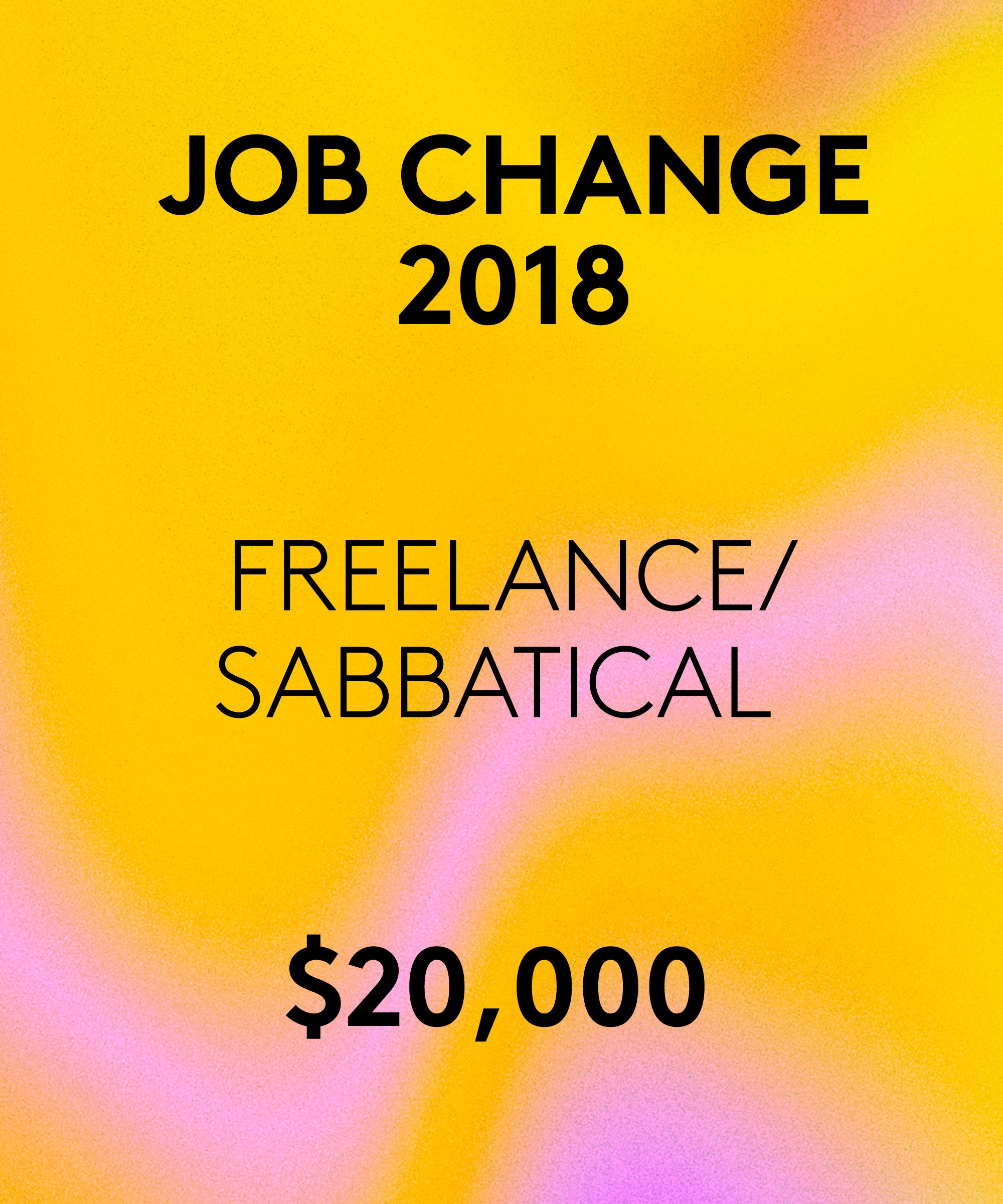
I did some consulting side gigs, just so I didn’t get totally bored and lose my skills and connections, but mostly I volunteered and enjoyed my free time. I knew this might be the only time until retirement when I could just do whatever the heck I wanted. Eventually, though, my bank account balance started dwindling and it was time to go back to work.

A former colleague from my tech job mentioned that her husband worked for a company that was restructuring its communications department and they might have open roles. Sure enough, they were hiring for a corporate communications leader so I applied. I was excited for the role and the company itself — a multibillion-dollar global, public company — but I took a slight pay cut.
Since it was my only option at the time and they told me that offer was already above what they had budgeted for the role, I didn’t have much room to negotiate. If I had lost out on this job, I would have been really screwed, so I accepted it and made it work.
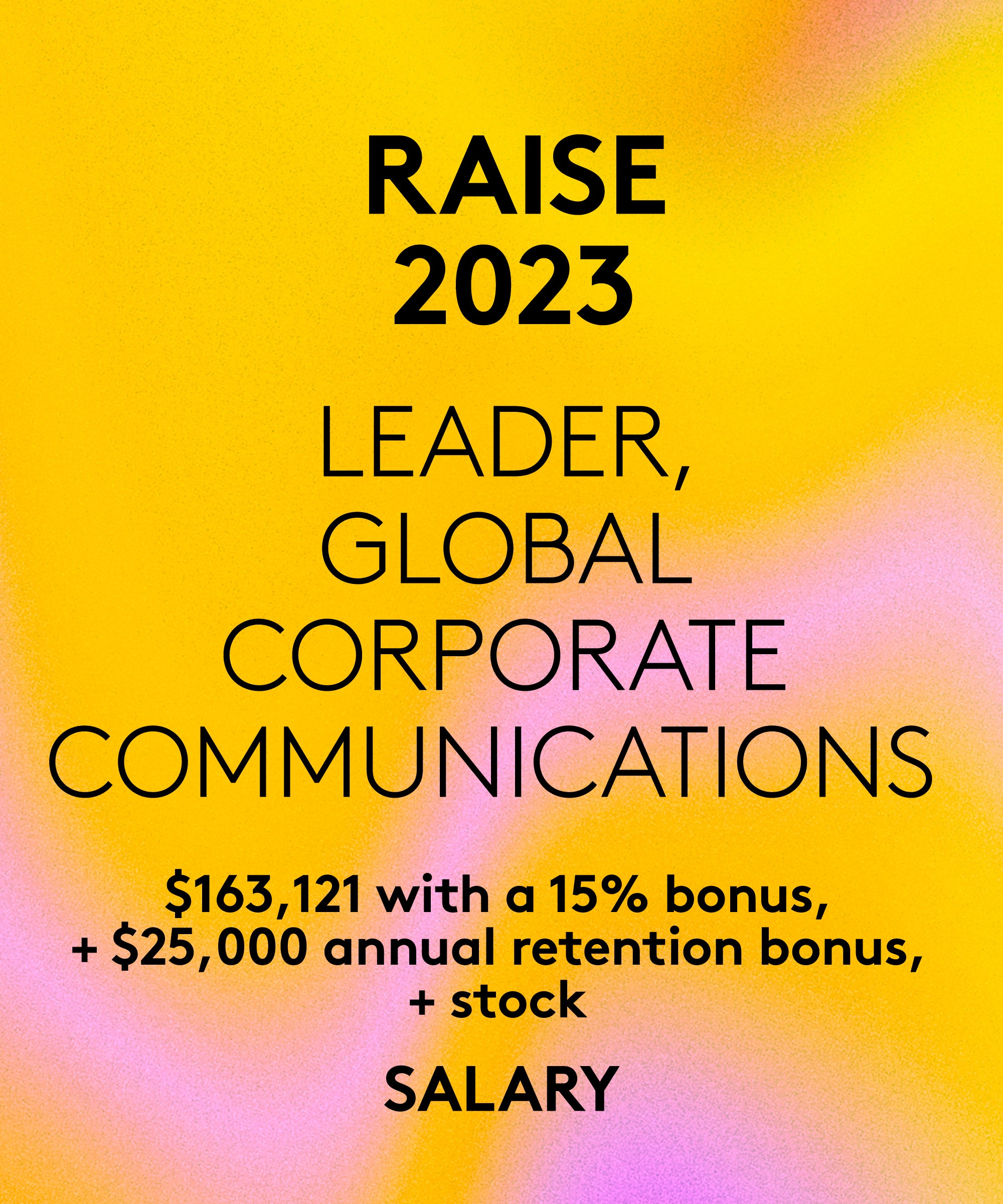
I’m now making the most I ever have. I was thrilled when I broke $200,000! The key for me was being creative with compensation asks; I couldn’t have done it on my salary alone. Telling my boss that I was considering leaving led to her presenting me with my $25,000 retention bonus. And asking for an increase in shares helps, too. Remember that salary isn’t your only (and often not even your best) leveraging tool.
In theory, I’d love to hit $300,000 and land a VP of communications role at another large public company. However, I’m not willing to sacrifice my work-life balance. As a solo mom, I don’t have a partner to help at home, so being present in my son’s life is incredibly important to me. I have that balance and freedom now, which is wonderful. My goal in my career is to work as little as possible while making as much as possible, and I feel like I’ve hit that perfect balance here.
I feel really proud of myself when I look back on where I started. When I dropped out of college because I was too broke and needed to work full time, I never imagined that I’d be making a quarter of a million dollars a year — or that my bonuses alone now would be double my starting salary from back then! It was a gamble for sure, but it’s worked out really well for me.
Like what you see? How about some more R29 goodness, right here?
I Got My Dream Job, Despite My Imposter Syndrome
I Used This Strategy To Get My Biggest Salary Jump
I Asked For The Top Of The Salary Scale & Got It







